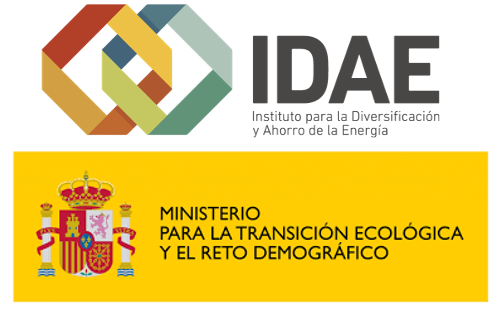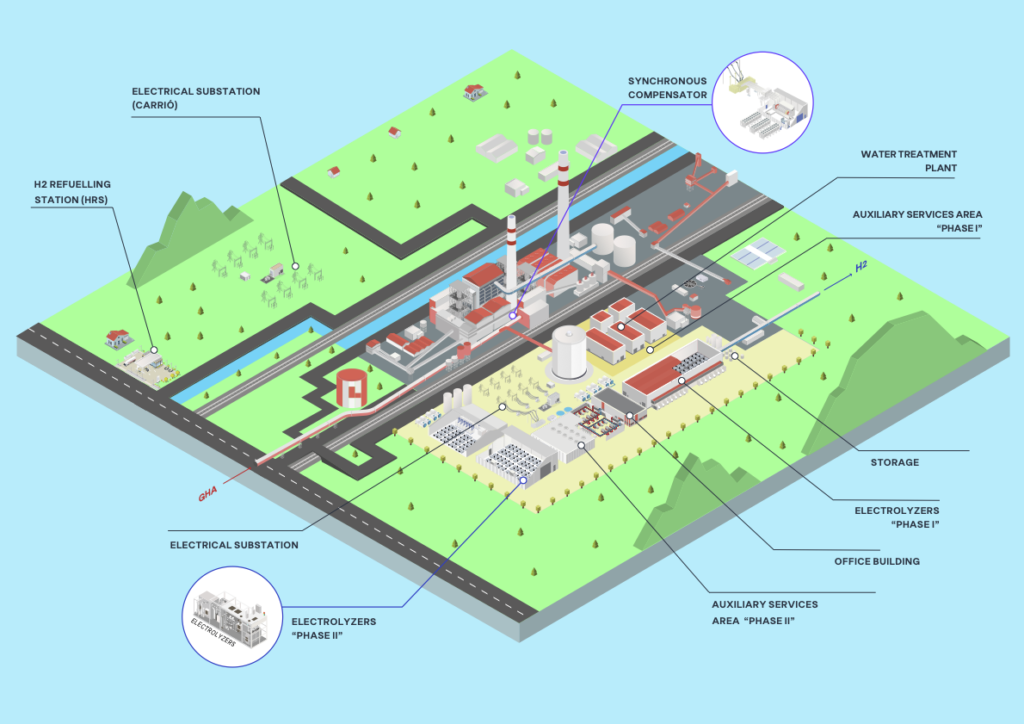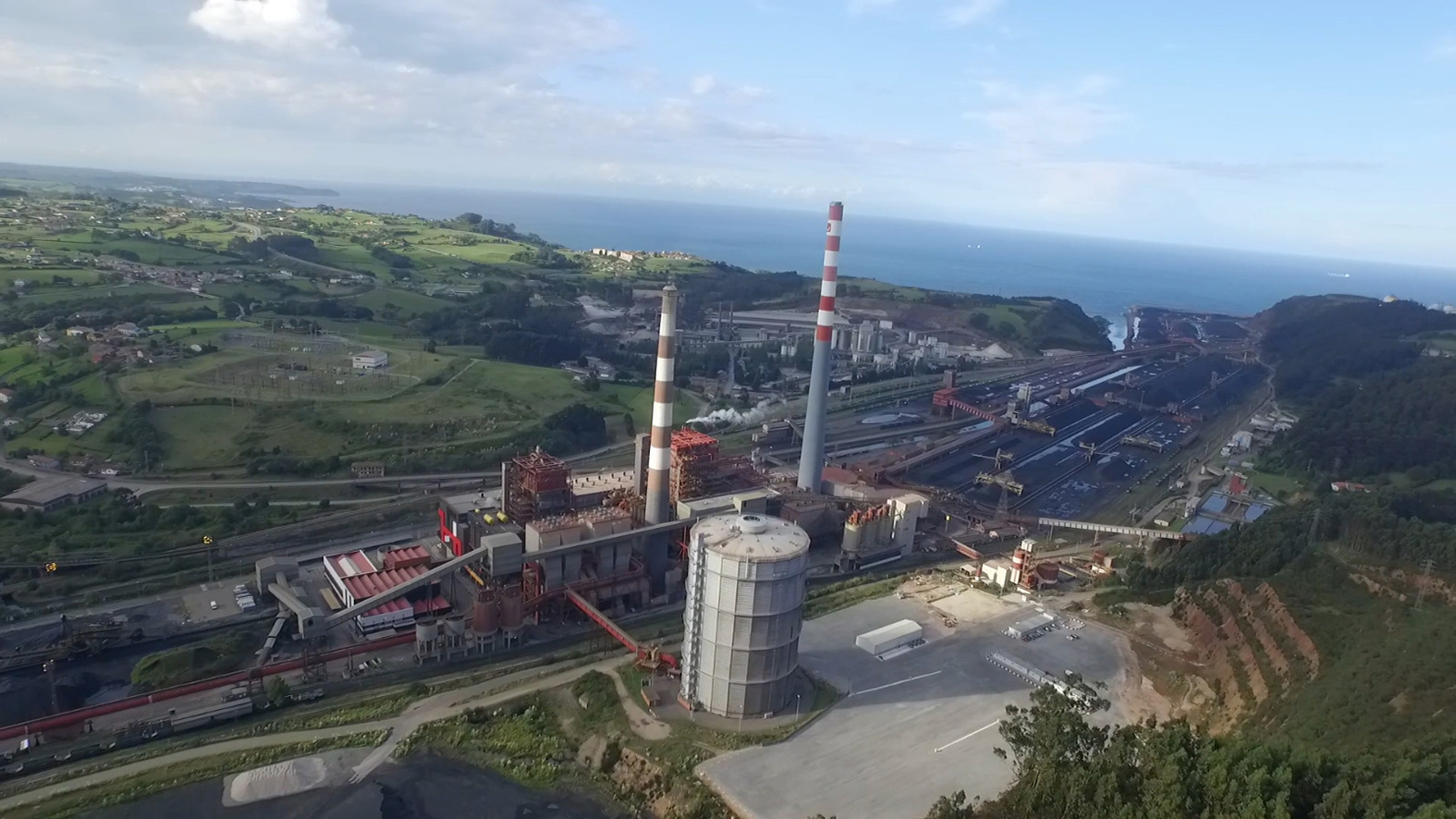
Hy2Market Regional Highlight: Asturias, Spain
As part of the Hy2Market project, Asturias, Spain, is at the forefront of innovative hydrogen technology development. EDP and Tacticatic are leading efforts to enhance the efficiency and reduce the Levelized Cost of Hydrogen (LCOH) through advanced Process Control Systems (PCS) for large electrolysis facilities. These facilities will not only optimize hydrogen production but also provide crucial flexibility to the power network by managing renewable energy surpluses. Signalsoftware is contributing to this effort by developing a digital twin for electrolysis equipment, including a virtual simulation of the Aboño plant, aimed at predicting maintenance needs and reducing operational costs.
In addition, EDP and TRESCA are collaborating on a feasibility study to upscale the electrolysis capacity in Asturias to 500 MW, with an initial phase of 150 MW* planned to commence operations by 2026. HIDRITEC is set to develop a customized Water Treatment Container for the 150 MW plant, ensuring optimal water quality for electrolysis. Additionally, SAZEPI will produce a maritime container to house the electrical components of the facility, further supporting the infrastructure. EDP is also working with Spanish SMEs on the development of hydrogen pipelines, exploring the co-transport of H2, O2, NH3, and heat, particularly across the Aboño river and railway. This initiative is part of a broader task, which focuses on establishing a comprehensive hydrogen transport network in Asturias. Furthermore, partners are evaluating the integration of hydrogen in existing power plants and industrial furnaces. This includes the potential retrofitting of the Aboño coal power plant with hydrogen-compatible burners, aimed at reducing fossil fuel dependency and paving the way for future thermal plant conversions. Regarding the use of hydrogen in the Aboño Power Plant, EDP jointly with the technologist of the boiler has developed a report analyzing the performance of the boiler with concentrations of hydrogen in the gas fuel up to 10%, obtaining good, expected results.
ALSA, a leading Spanish transportation company, is also playing a crucial role in the Hy2Market project. ALSA will invest in a state-of-the-art Fuel Cell Electric Vehicle (FCEV) urban/suburban demo bus to test on various routes in Asturias. This bus will be tested over three years, covering 200-300 km per day, to evaluate its performance, consumption, and reliability compared to existing technologies such as diesel, diesel-hybrid, and battery electric vehicles (BEV). The Fundación Asturiana de la Energía (FAEN), the Regional Energy Agency in Asturias, is contributing to the dissemination activities, sharing knowledge, and facilitating project activities in Asturias. FAEN aims to kickstart a regional renewable hydrogen ecosystem, involving both SMEs and large companies, and to establish the first hydrogen production facilities in the region.
Complementing these efforts, the Asturias H2 Valley project aims to establish a first-of-a-kind Power-to-Hydrogen Hub to produce and supply renewable hydrogen, with the overall objective of decarbonizing the regional economy. The project will repurpose the Aboño coal power plant site to develop a 150 MW electrolysis facility achieving 99.98% reduction in greenhouse gas emissions. This initiative will demonstrate the viability of a fully integrated hydrogen production and distribution process optimized for renewable energy availability and demand from multiple sectors. By repurposing existing infrastructure, the project will lower initial investment costs, reduce environmental impact, and expedite administrative processes and permitting times. The project will not only increase circularity, but also provide an industrial-size technical demonstration for projects at other sites in transition to emulate.
The Asturias H2 Valley project plans to avoid consuming around 650 gigawatt hours (GWh) of fossil fuels annually, equivalent to the emissions of more than 45,000 Spanish households and aims to avoid 1.7 million tonnes of CO2 emissions over the first ten years. The project will strongly contribute to several EU and national climate related strategies and goals, such as the European Green Deal, EU Hydrogen Strategy, Circular Economy Action Plan, and REPowerEU, while following the Just Transition principles. Achieving 150 MW of electrolysis will also directly contribute to the European goals of deploying electrolysis capacity to produce renewable hydrogen. It is expected to generate 55 high-value direct jobs during implementation and over 400 direct jobs during construction, benefiting the local economy and helping to transition industries away from coal. This project will bolster the region’s position in the hydrogen market and reduce reliance on coal and natural gas imports through the participation of local companies across its value chain, contributing to a positive trade balance and supporting sustainable industrial growth.
*the project was initially planned for 100MW, and later decided to be scaled up until 150 MW.
Asturias H2 Valley Project affiliations:



Aboño Plant Hydrogen Layout in Asturias, Spain:

